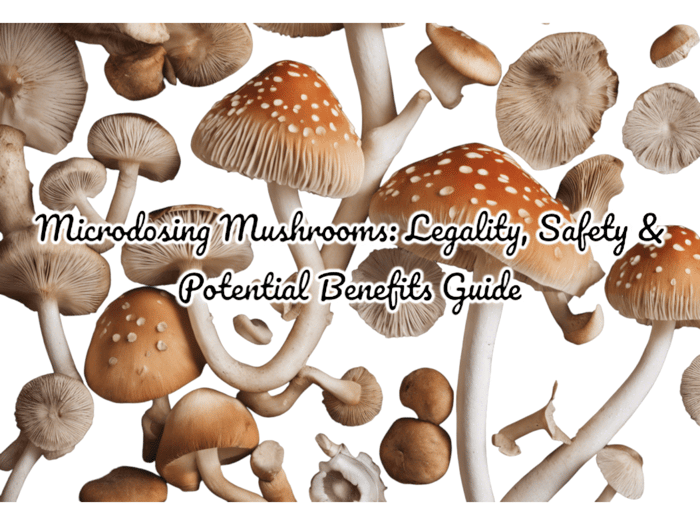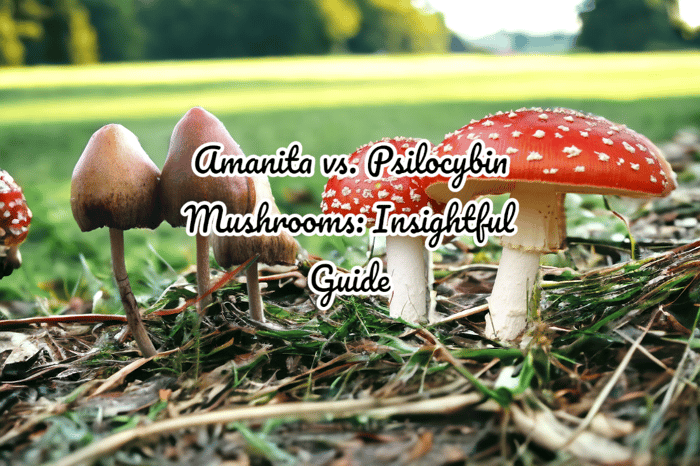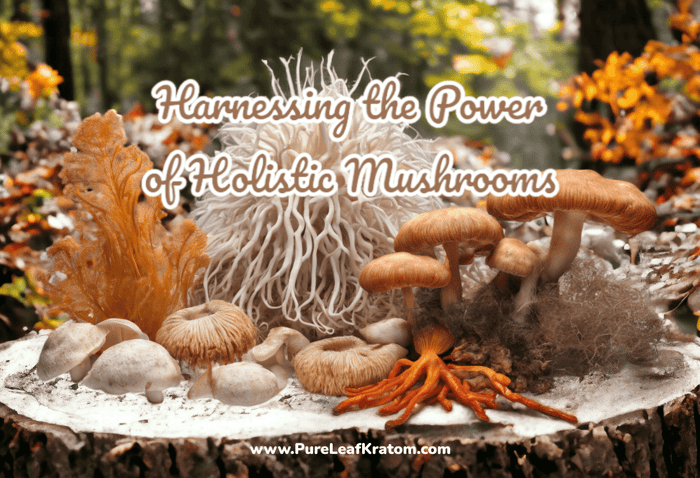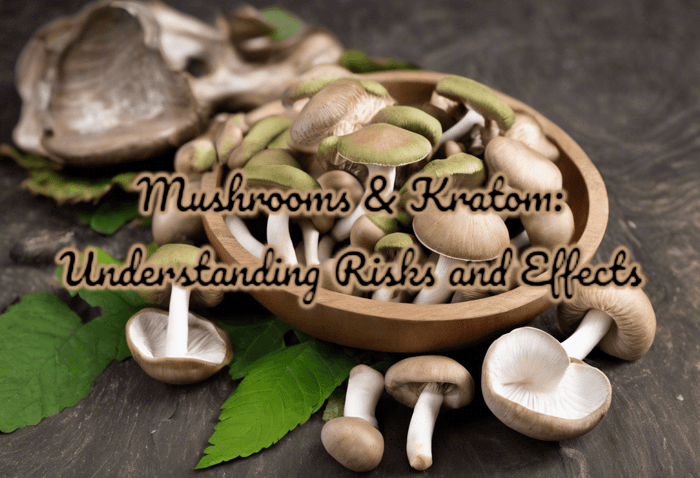
The Balanced Guide to Understanding Microdosing Mushrooms: Legality, Safety and Potential Benefits
Microdosing mushrooms is a growing trend.
Grasping the Concept of Microdosing
Microdosing is the practice of consuming small, sub-perceptual amounts of psychedelic substances. The concept is rooted in using these substances not for their hallucinogenic effects, but to enhance creativity, mood, and cognitive function.
Understanding the Practice and Use of Microdosing
Microdosing mushrooms specifically refers to consuming minute amounts of psilocybin, a naturally occurring psychedelic compound found in certain species of mushrooms. It gained popularity with professionals in Silicon Valley as a tool to boost creativity and improve mental productivity. Today, it is being explored as a potential avenue for alleviating symptoms of conditions such as anxiety and depression.
A Glimpse of the Topics Ahead
In the upcoming sections, this guide will delve deeper into various aspects of microdosing mushrooms. It covers the legality of the practice, the safety considerations and potential risks, as well as the reputed benefits as suggested by preliminary research.
Understanding Microdosing with Psilocybin Mushrooms
A key player in the conversation about controlled substances with potential behavioral and mental health benefits is psilocybin mushrooms, also known as magic mushrooms. These mushrooms are chiefly characterized by their ability to generate hallucinogenic effects.
The Psychoactive Nature of Psilocybin Mushrooms
The primary active compound in these mushrooms, psilocybin, is responsible for the psychoactive or hallucinogenic effects. When consumed, the body metabolizes psilocybin into psilocin, which induces an altered state of consciousness and perception. This change in psyche may include alterations in mood, thinking patterns, and perception of time and space.
Methods of Microdosing with Psilocybin Mushrooms
Microdosing involves administering sub-perceptual doses of a psychoactive substance. It's a regimen where people consume about a tenth of the typical recreational dose of the substance. In the case of psilocybin, this involves drying the mushrooms, then grinding them into powder for consumption, often in capsules, for easy dosage measurement and control. It remains important to stress that such methods should be approached with caution, given the potential legal and health ramifications.
Determining the Dosage for Microdosing
Measuring the Microdose
Generally, a microdose of psilocybin mushrooms is approximately 0.1 to 0.5 grams of dried mushrooms. Ultimately, this amount can vary greatly depending on the species of the mushroom and the individual’s body weight and metabolism. Therefore, care and guidance are necessary in ascertaining the appropriate dose for an individual.
The Regularity of a Microdosing Regimen
Certain guidelines propose a schedule where a microdose is taken every three days, roughly twice a week, to avoid the development of a tolerance to psilocybin. This specific schedule, however, can greatly vary depending on individual needs and responses. As with dosage, appropriate caution and consultation with a healthcare provider is always recommended.
Comparing Microdosing to Full Mushroom Dosages
Mushroom microdosing significantly differs from a full psychedelic dose in terms of the experience and potential risks. Unlike a full dose, microdosing does not induce potent hallucinogenic effects. Instead, it is said to enhance creativity, mood, focus, and empathy, among others. Nonetheless, these potential benefits should be weighed against potential risks such as triggering latent psychological conditions or causing uncomfortable bodily sensations.
This information is based on general guidelines and research findings available in the public domain. It is intended for educational purposes only and not as specific advice or recommendations for individual health conditions. Dosages can vary widely based on individual needs, health status, and advice from healthcare professionals. Always consult with a healthcare provider before starting any new supplement regimen.
The History of Microdosing
Microdosing is not as new a concept as some might presume, its roots drawing on the history and tradition of psychedelic substance use. Understanding the backdrop against which microdosing has emerged necessitates a journey into its origins, early uses, and how it transitioned into popular practice.
Origins and Early Use of Psychedelic Substances
The use of psychedelic substances traces back thousands of years. Cultures around the world have long recognized the potential for these substances to provide spiritual insight and promote inner growth. Ancient practices, such as the consumption of peyote by Native American tribes and the use of the ayahuasca brew in Amazonian rituals, reflect the early use of psychedelic substances in human societies (Winkelman, 2019).
Transition to Microdosing and its Popularity
While microdosing is based on the principles underlying the use of psychedelic substances, it is a relatively recent innovation. Its popularity started gaining traction in the 21st century, thanks in part to certain influential figures.
Influential Figures in Popularizing Microdosing
Notably, James Fadiman, a psychologist and researcher known for his work with psychedelics, played a key role in popularizing microdosing. His book, "The Psychedelic Explorer's Guide," published in 2011, included a chapter on microdosing. Fadiman suggested taking sub-perceptual doses of psychedelics like LSD or psilocybin mushrooms on a regular basis as a form of mental and physical enhancement (Horgan, 2020).
Contemporary Culture and Microdosing
In the contemporary world, microdosing is being widely adopted in diverse societal spheres, from Silicon Valley to academic research. Technologists pursue it as a tool for enhancing creativity, while scientists study its potential therapeutic applications. However, as microdosing becomes more mainstream, ethical and legal considerations are coming into sharper focus. Amid its increasing popularity, the onus is on the scientific community and policy makers to guide informed decisions surrounding its use (Kuypers et al., 2020).
Potential Benefits of Microdosing Mushrooms
Microdosing mushrooms, specifically those containing psilocybin, is reported to hold a range of benefits across cognitive, mood-related, and therapeutic areas. While the research remains limited and these substances are not yet fully legal in many countries, individuals and some scientific studies highlight potential improvements.
Cognitive and Creativity Benefits
One of the touted advantages of microdosing mushrooms is the potential improvement in cognitive functioning and creative abilities.
Potential Improvements to Focus and Cognitive Functioning
Users claim that microdosing can lead to enhanced focus and cognitive functioning. While these effects are currently supported more by anecdotal reports than clinical research, a study in the Journal of Psychopharmacology did find that microdosing psilocybin had positive effects on measures of cognitive flexibility.
Claims About Increasing Creativity and Problem Solving
Creativity and problem-solving abilities are also said to be enhanced by microdosing. Individuals report experiencing more creative thoughts, an uptick in ideas, and an increased ability to approach problems from a different perspective. However, more research is needed to validate these claims.
Mood and Psychological Benefits
Psilocybin microdosing is also reported to have mood and psychological advantages, particularly for conditions such as depression and anxiety.
Potential for Treating Depression
Depressive symptoms may be eased by psilocybin microdosing, as some studies have shown promising results. JAMA Psychiatry published a study indicating that psilocybin, in conjunction with psychotherapy, could outperform conventional antidepressants in the treatment of major depressive disorder.
Use in Anxiety Reduction
Several reports indicate that anxiety symptoms may be alleviated with psilocybin. This was substantiated by a study in the Journal of Psychopharmacology, where it was found that moderate psilocybin doses reduced clinical measures of anxiety.
Therapeutic Potential
Beyond cognitive enhancement and mood regulation, the therapeutic potential of microdosing mushrooms is a growing area of research.
New Approaches in Psychedelic-Assisted Therapy
Expanding the use of psychedelic substances like psilocybin in a therapeutic context is a new approach that is gaining attention in psychological research. Nature reports an increased interest in this approach, with clinical trials in progress to further explore this potential.
The Possible Risks and Side Effects of Microdosing
While microdosing mushrooms has been reported to offer a range of potential benefits, it is also important to explore the possible risks and side effects associated with this practice.
Short-term Side Effects
Microdosing psilocybin mushrooms could result in a number of short-term side effects. Users may experience physical discomforts such as stomachache, nausea, dizziness, dry mouth, or changes in heart rate. Psychological effects could include anxiety, paranoia, and enhanced or altered sensory perception.
Long-term Risks and Potential Downsides
Over the long term, several risks and potential downsides have been identified with the use of psilocybin mushrooms in microdose amounts.
Addiction and Tolerance
While psilocybin is not typically associated with physical dependence, a psychological dependence can occur. Chronic users might develop a tolerance, necessitating higher doses to achieve the same effects. Microdosers may need to progressively increase their dosages, which can potentially lead to larger doses that carry additional risks.
Psychosis Risk
Moreover, a critical risk of long-term psilocybin usage, particularly in individuals predisposed to psychotic disorders, is the potential for the induction of psychosis. Those with a personal or family history of schizophrenia or other psychotic disorders might be at elevated risk when using psilocybin, even in microdoses.
The Need for Further Research and Understanding
Despite increasing interest in microdosing, comprehensive scientific understanding of the long-term effects of psilocybin is limited. As a result, the field calls for more robust and systematic research. Observational studies and clinical trials are required to better understand both the potential benefits of microdosing and its risks, particularly for regular or long-term users.
Overall, while the practice of microdosing mushrooms continues to generate interest, it is necessary to approach it with caution. Understanding the possible risks and side effects is just as essential as acknowledging the potential benefits.
Current Research and Studies
The scientific community's interest in the practice of microdosing mushrooms, or more specifically, their active compound psilocybin, has significantly increased in recent years. However, the existing body of evidence is far from comprehensive, and much of the potential effects, benefits, and risks of microdosing are still unclear.
Current State of Research on Microdosing Mushrooms
Notable Studies and Findings
A study conducted by the Beckley Foundation and Imperial College London explored the effects of microdosing psilocybin on the cognitive functioning and mental health of healthy adults. The findings, which are largely anecdotal, suggest that microdosing mushrooms may have potential benefits such as enhanced creativity, heightened mood, and improved focus.
Another impactful study from University of Calgary centered on the treatment of Post-Traumatic Stress Disorder (PTSD) suggests that microdoses of psilocybin could prove to be a promising treatment methodology. However, the study reinforces the need for further research to ensure safety and effectiveness.
Gaps in the Research and Unanswered Questions
While preliminary research provides some compelling evidence regarding the potential benefits of microdosing mushrooms, several critical questions still demand answers. For instance, information about dosage, frequency, and duration for optimal benefits needs further elucidation. There is also a lack of long-term studies, making it difficult to determine the long-term effects and potential risks associated with microdosing. Additionally, now that the uses for managing mental health challenges like anxiety and depression have been unearthed, how these substances interact with traditional psychological therapies needs to be established.
The Potential and Limitations of Current Research
Current research on microdosing mushrooms indeed shows promise, especially in regards to improving mood, boosting creativity, and potentially helping with conditions like PTSD. However, most studies to date are based on self-reporting or anecdotal evidence, which can often be unreliable.
More comprehensive, controlled studies are required to better understand the range of potential effects and to establish clear guidelines for safe and effective use. Legal constraints and the stigma associated with psychedelic substances also complicate the research process, adding another layer of challenges that scientists and researchers need to navigate.
Understanding the Legal and Safety Concerns Regarding Microdosing Mushrooms
The use of psilocybin, the active compound in psychoactive mushrooms, is subject to a variety of laws and regulations around the world. It's imperative to understand the legal ramifications regarding its use, including microdosing. Additionally, there are inherent safety concerns and precautions regarding psilocybin use.
Current Legal Status in Various Countries
Countries Where Microdosing Mushrooms is Legal
In some nations, the use of psilocybin mushrooms is permitted, either completely or with certain restrictions. In Brazil, there are no specific laws against the use of psychedelic mushrooms. Similarly, the use of these mushrooms is not specifically prohibited in the British Virgin Islands.
Countries Where the Legal Status is Either Illegal or Unclear
In many other countries, the legal status of psilocybin mushrooms and their use is either expressly illegal or in a legal gray area. In the United States, for example, psilocybin is classified as a Schedule I drug under federal law, making its use illegal. The legal status is complex in countries like Canada, where the sale of psilocybin is illegal, but the purchase and use of spores and growing kits are not. Meanwhile, some cities in the U.S., like Denver, Oakland, and Santa Cruz, have decriminalized psilocybin to varying degrees.
Safety Concerns and Precautions
Ensuring Pure and Safe Sources of Psilocybin
Poorly sourced or impure psilocybin mushrooms can carry potential health risks. It's critical to procure them from reliable sources to ensure they are safe for consumption. Risks associated with impure sources can range from exposure to harmful substances to the potential presence of toxic mushroom species.
Health and Lifestyle Considerations for Safety
People with histories of mental health conditions, particularly psychosis, are often advised to avoid psilocybin due to potential exacerbation of symptoms. Likewise, individuals dealing with substance abuse or those on certain medications may also face heightened risks. Regular check-ups with healthcare providers and open conversations about psilocybin use are crucial for safe use and managing these potential dangers.
Guidelines for Responsible Use
Responsible use of psilocybin involves assessing one's health and lifestyle, understanding the legal implications, and considering the benefits and risks. It's essential to start with small doses, have a support system in place, and avoid combining psilocybin with alcohol or other substances. Practicing mindfulness and emotional preparation for potential changes in perception and emotions can also contribute to a safer, more beneficial experience.
Key Takeaways from the Microdosing Mushrooms Guide
The realm of microdosing psychedelic mushrooms has been dissected throughout our guide. Right from understanding the basics to diving deep into the potential benefits, risks, safety and legality, it has been a comprehensive look at this contemporary practice. Here, let's revisit some crucial points.
Potential Benefits and Risks Associated with Microdosing Mushrooms
The benefits of microdosing mushrooms can span various dimensions of an individual's life. From enhanced creativity, improved mental health and enhanced cognition to spiritual awakening, potential benefits are numerous.
However, the potential risks associated with microdosing should never be undermined. These could include legal implications, potential health risks, and unpredictability of effects. While some users have found microdosing beneficial, it may not be the appropriate solution for everyone, highlighting the importance of a balanced, well-informed approach.
Emphasizing Responsible Use and Continued Research
Though the potential benefits of microdosing mushrooms could be substantial, responsible use is absolutely vital. Furthermore, since the field is relatively new, there is still much research to be done. Thus, it is essential to maintain a continuous effort in exploration and research in this domain.
Encouraging Learning and Safety in Microdosing
This guide has aimed to deliver an unbiased perspective on microdosing mushrooms. However, it is not intended as an endorsement of its use. Instead, we emphasize the need for individual responsibility, safety, and continuous learning. It's essential to stay updated with the latest research findings in this field and make careful, informed decisions based on the available evidence.
Conclusion on Microdosing Mushrooms
Making sense of the world of microdosing mushrooms is a multilayered task that requires careful consideration. The potential benefits are undoubtedly intriguing, but the risks, safety considerations, and legal implications must also be thoroughly understood. This guide has aimed to deliver a balanced analysis supporting informed decision-making about microdosing mushrooms.
In conclusion, the world of psychedelic mushrooms offers fascinating prospects for exploration and understanding, making it an intriguing field both for users and researchers alike. It is our sincere hope that this guide serves as a meaningful resource in this journey. The world of microdosing is not just black and white; it's a spectrum of possibilities, waiting to be explored responsibly.
Disclaimer
The products discussed here and any claims or suggestions made have not been evaluated by the Food and Drug Administration (FDA). This content is not intended to diagnose, treat, cure, or prevent any disease.
The information on this website is provided for general informational purposes only and should not be relied on as the sole basis for making decisions – we encourage consulting primary, qualified, more complete, or professional sources. Any reliance on the material on this site is at your own risk.
Information shared on this site may be updated at any time and may include information or data that are no longer current, accurate, or complete and is provided for your reference only. We are not obligated to update published content, and it is the reader’s responsibility to monitor any changes and to consult with primary, qualified, more complete, or professional sources.
We make no guarantees regarding the completeness, accuracy, or reliability of the information provided, nor do we warrant that any products, services, or materials offered will meet individual expectations. Use of this site and its content is at your own discretion and risk.




